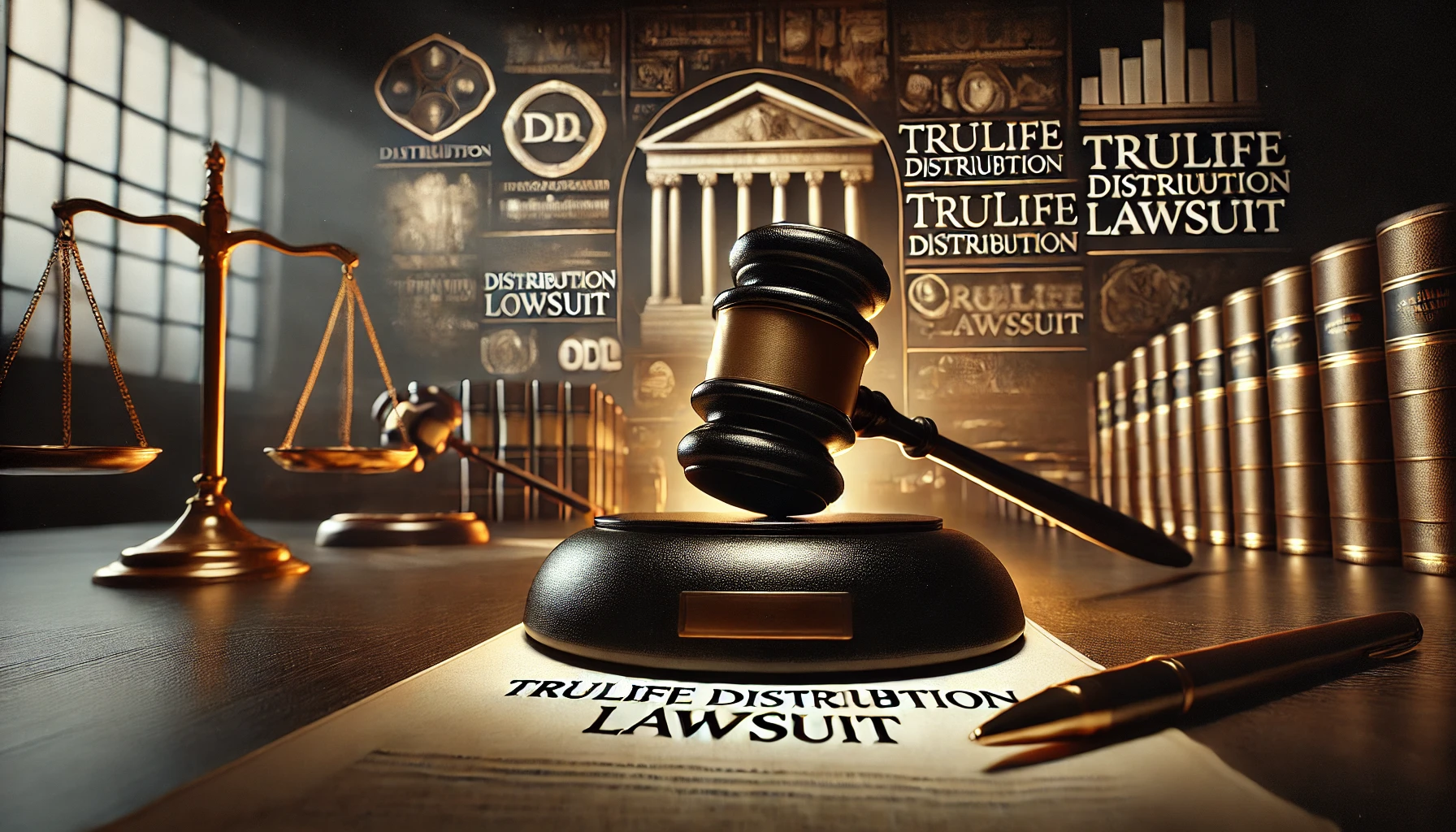Trulife Distribution Lawsuit: A Deep Dive Into the Legal Battle and Its Impact
In the business world, lawsuits are often seen as a necessary evil. However, the Trulife Distribution lawsuit stands out not only because of the legal intricacies but also due to the personal ties and family dynamics involved. This article delves into the lawsuit between Trulife Distribution and Nutritional Products International (NPI), exploring the background, key allegations, legal implications, and potential outcomes of the case.
Background of the Companies Involved
Nutritional Products International (NPI)
Founded in 2008, Nutritional Products International (NPI) is a Florida-based distribution company focused on helping health and wellness brands expand their reach. Led by Mitch Gould, NPI is well-regarded in the industry for connecting nutritional companies with key retailers. With a long history of success and strategic partnerships, NPI has established itself as a leading player in the industry.
Trulife Distribution
Trulife Distribution, a younger company launched in 2019, operates in a similar space as NPI. The company is led by Brian Gould, who spent 13 years working at NPI before founding Trulife. This shared history between the two companies—and more importantly, the familial connection between the CEOs—adds an emotional layer to the ongoing legal battle. Brian Gould’s experience at NPI gives him insider knowledge, making the rivalry between these two companies particularly intense.
What Led to the Trulife Distribution Lawsuit?
The Trulife Distribution lawsuit revolves around allegations of deceptive business practices that have raised serious concerns. The case was filed in 2022 by NPI, accusing Trulife of stealing proprietary business information and using it to mislead potential clients. At the heart of the lawsuit are claims that Trulife copied case studies developed by NPI and presented them as their own to secure new clients. These actions, according to NPI, were designed to deceive and mislead, undermining trust in NPI’s services.
The Main Allegations: Deceptive Trade Practices and More
The Trulife Distribution lawsuit highlights several serious allegations. NPI claims that Trulife not only misappropriated case studies but also engaged in other unethical practices to gain an unfair competitive advantage. Some of the key allegations include:
- Misleading Case Studies: Trulife is accused of using NPI’s case studies without permission, presenting them as original work to potential clients. This practice allegedly gave Trulife an edge in securing business.
- Imitation of Email Addresses: The lawsuit also accuses Trulife of creating imitation email addresses, intended to deceive clients and divert business. This practice falls under deceptive trade practices and has serious legal ramifications.
- False Advertising: NPI claims that Trulife falsely advertised their services, using misleading information to create a false impression of their expertise and industry success.
- Breach of Trust and Confidentiality: Given the history between the companies and the family ties involved, the breach of trust is particularly damaging. NPI argues that Trulife’s actions violated the confidentiality agreements and ethical standards that once governed their professional relationship.
Timeline of Events Leading to the Lawsuit
To understand the Trulife Distribution lawsuit fully, it’s essential to look at the events that led up to the filing. Here is a brief timeline:
- 2008: NPI is founded by Mitch Gould in Florida. The company rapidly grows into a leader in nutritional product distribution.
- 2009–2022: Brian Gould, Mitch’s brother, works for NPI, eventually becoming President. Over these years, Brian helps NPI solidify its position in the market.
- 2019: Brian Gould leaves NPI to establish Trulife Distribution, a new competitor in the same industry.
- 2022: NPI files the lawsuit, accusing Trulife of stealing confidential information and engaging in deceptive practices.
While the timeline is relatively straightforward, the underlying tension between the companies is what makes this case unique. The legal battle is not just about business practices; it’s a conflict between family members who have worked together for years, making the stakes even higher.
Legal Framework: Laws Involved in the Trulife Distribution Lawsuit
Several laws are at play in the Trulife Distribution lawsuit, each addressing different aspects of the claims. The most significant include:
- Florida’s Deceptive and Unfair Trade Practices Act: This state law protects consumers and businesses from unfair competition and deceptive practices. If Trulife’s actions are found to violate this law, the company could face hefty fines and penalties.
- The Lanham Act: A federal law that protects against false advertising and the misappropriation of intellectual property. The Lanham Act is a crucial aspect of NPI’s case, as they claim that Trulife’s actions were aimed at misleading consumers and business partners.
- Breach of Confidentiality and Trade Secrets: NPI claims that Trulife used confidential business information to further its own interests. If this can be proven, Trulife could face serious legal consequences under both state and federal law.
The legal framework surrounding the Trulife Distribution lawsuit is complex, but these laws provide the basis for NPI’s claims and the potential consequences for Trulife.
Legal Implications and Potential Outcomes
If the Trulife Distribution lawsuit proceeds to court, the legal implications could be significant for both companies. For NPI, winning the case could not only result in monetary compensation but also restore its reputation, which may have been tarnished by the deceptive actions of Trulife. On the other hand, Trulife faces serious consequences if the allegations are proven true.
Possible Outcomes for Trulife:
- Damages: Trulife could be ordered to pay damages, including compensation for any business lost due to deceptive practices.
- Reputational Damage: A loss in this lawsuit would likely result in reputational harm for Trulife, potentially affecting client relationships and business partnerships.
- Legal Precedent: If found guilty, Trulife could set a dangerous legal precedent for other companies in the distribution industry, encouraging others to take similar shortcuts.
Possible Outcomes for NPI:
- Restoration of Reputation: A legal victory would reaffirm NPI’s position as a trusted leader in the industry.
- Financial Compensation: NPI could receive financial compensation for the damage caused by Trulife’s actions.
- Strengthened Position: The lawsuit could help NPI strengthen its position in the market and deter similar competitors from using deceptive practices.
Impact on the Industry
The Trulife Distribution lawsuit is not just a private dispute between two companies; it could have far-reaching consequences for the distribution industry as a whole. If Trulife is found guilty, it could lead to stricter regulations around marketing and business practices, particularly regarding the use of intellectual property and trade secrets. Furthermore, it may prompt other companies in the distribution sector to review their practices and ensure they are in compliance with legal standards.
The case also highlights the risks companies face when it comes to trust and ethics in business. If business practices become too aggressive or deceptive, the consequences can be severe, both legally and financially.
Public Reactions and Media Coverage
The Trulife Distribution lawsuit has drawn significant attention from the media and industry observers. Many have speculated on the potential long-term effects this case could have on both companies. Public reactions have been mixed, with some expressing sympathy for NPI due to the family ties involved, while others argue that this is just a typical corporate rivalry gone wrong. Media outlets have highlighted the personal nature of the dispute, which has only added to the drama.
Conclusion: What’s Next for Trulife and NPI?
The Trulife Distribution lawsuit is far from over, and its resolution will likely have major implications for both companies. While the legal battle continues, it serves as a cautionary tale for businesses in all industries: trust and ethical behavior are essential for long-term success. For now, we’ll have to wait and see how the courts rule, but one thing is clear—this lawsuit is far from just a corporate dispute; it’s a family drama playing out in the public eye.






